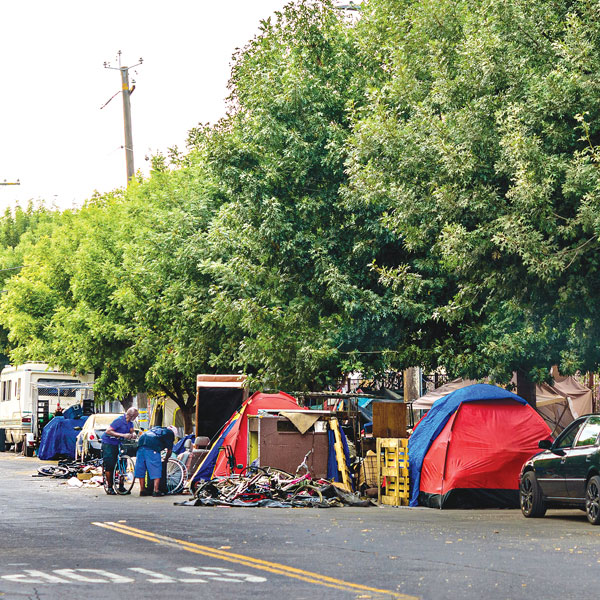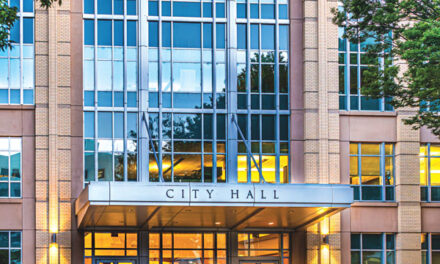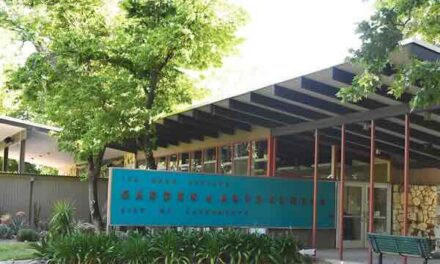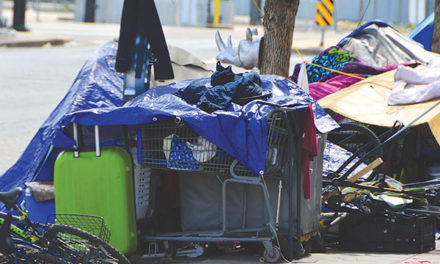The counter-intuitive correlation between money and homelessness continues to confuse Mayor Darrell Steinberg and city leaders. The correlation goes like this: The city raises money to house homeless people, yet the number of people living on the streets grows larger. More money equals more homelessness.
Steinberg recently said Sacramento would receive about $28 million in state funds to combat homelessness. The dollars would become part of a $62 million campaign to convert old motels, manufactured homes and other sites into supportive units for unsheltered people.

Meantime, homeless people and the lawyers, social workers and volunteers who help them say they need something else—something far less expensive than remodeled motels and new housing units. Something called “safe ground.”
Safe ground is a tent-city concept, a place where homeless people maintain their own primitive domiciles with civic approval. It resembles an activity many middle-class people enjoy while on vacation—camping. In fact, homeless people often use the word “camping” when they refer to their tent city lifestyles.
In the past decade, as homeless numbers have skyrocketed, unauthorized tent cities have become ubiquitous. They hide under the W-X freeway and along nearby streets. They mushroom on the north end of 12th Street. City officials and homeowners find them abhorrent. They lack sanitation, running water and electricity. They attract rats and other vermin. They negatively impact property values.
Despite those problems, Sacramento is ready to compromise. City officials are open to a variation on safe ground, where access is controlled and illegal activities are discouraged, where sanitation is available, trash is collected and residence is temporary.
None of this may work. If the city creates too many rules, homeless people may reject a sanctioned safe ground and move their tents back onto the street.
Talking to homeless people, I find many who cherish the freedom of tent cities. They feel safe and independent in their tents—far safer and independent than in shelters. I have met people who would rather camp out than move into the expensive transitional and permanent motel units Steinberg plans to deliver. Money won’t change their minds.
And money doesn’t buy much. The $28 million state windfall comes from a program called Homekey. The city figures the money will provide around 210 permanent housing units. There’s another costly program called Project Roomkey, which involves temporary housing in motels. This summer, the city had about 650 people in Roomkey motels.
If those numbers sound impressive, remember there were 5,570 homeless people in Sacramento County when the last headcount was conducted in January 2019. The next count, scheduled for January, will doubtlessly be higher.
Steinberg recently signaled a positive turn toward a sanctioned safe ground. But he wants to spend $5 million on 500 “tiny houses” for homeless villages, not tents. Classic Steinberg: Why spend $200,000 when you can spend $5 million?
City Councilmember Jeff Harris, whose Third District includes the city’s skid row around 12th Street and Richards Boulevard, believes tent cities can work, minus the tents, trash, drugs and vermin.
Harris prefers pallet shelters—portable, shed-like prefabs. He says, “A temporary safe ground is much needed, but not with tents. Pallet shelters are much better. They’re portable and can be cleaned. They give people some dignity. They cost about $5,000, which is much cheaper than other options. And service providers should be present in any safe ground.”
Sacramento homeless people have pleaded 12 years for a sanctioned safe ground, one with sanitation and electricity. A place they can run themselves. Such villages, filled with pallets or tents, won’t cost anywhere near $5 million. Maybe that’s the problem.
R.E. Graswich can be reached at regraswich@icloud.com. Follow us on Facebook, Twitter and Instagram: @insidesacramento.















